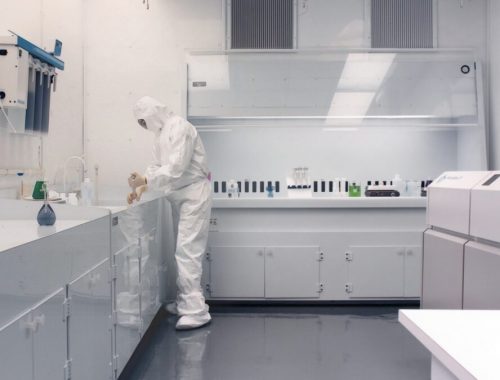Ensuring the Health and Safety of our Precious Chickens: Embracing Biosecurity Measures on the Farm
Selamat Datang! Welcome to our blog, where we strive to provide you with engaging and informative content on a wide range of topics. Today, we delve into an essential aspect of chicken farming: biosecurity. Our feathered friends play a significant role in our lives and its crucial to prioritize their well-being. By implementing robust biosecurity measures, we can ensure that our cherished chickens thrive in a safe and healthy environment.
Introduction: Safeguarding the Chicken Community
The enchanting world of chicken farming is characterized by vibrant feathery friends and delightful clucking echoing through the air. However, just like us, chickens are susceptible to diseases that can ravage their health and disrupt their daily rhythm. This is where biosecurity measures step in, acting as a shield to protect our chickens from various pathogens and potential dangers that lurk in their surroundings.
Body: A Fortress of Protection
1. Thorough Sanitation Practices
Cleanliness is paramount when it comes to safeguarding our chicken flock. Regularly cleaning and disinfecting the chicken coop helps eliminate harmful bacteria and viruses that might threaten our cherished chickens’ well-being. Remember, “bersih itu sehat” (clean is healthy), so let’s keep our feathered friends’ homes spotless!
2. Controlled Entry and Restricted Zones
Effective biosecurity strategies involve managing the entry points to chicken farms, ensuring only authorized personnel enter. By limiting access, we reduce the risk of contamination from outside sources. Furthermore, establishing designated zones within the farm helps prevent the transmission of diseases between different sections.
3. Hygienic Practices for Handlers
As devoted caretakers, we have the responsibility to keep our hands and clothing clean before and after handling our beloved chickens. Practicing good personal hygiene such as washing hands with soap and using protective gear, such as gloves and boots, can greatly reduce the risk of carrying diseases into the flock.
4. Monitoring and Health Checks
Regularly monitoring and conducting thorough health checks on our chickens is crucial to detect early signs of disease or illness. By promptly identifying any issues, we can take swift action to prevent further spread and provide timely treatment, guaranteeing the overall well-being of our chickens.
5. Vaccination: The Shield of Protection
Vaccination plays a vital role in bolstering our chickens’ immune systems. By ensuring proper vaccination protocols are followed, we can enhance their resistance to various diseases, safeguarding their health and ensuring the longevity of our precious flock.
Conclusion: A Serenade to the Guardians
As we conclude this informative piece on chicken farm biosecurity, let us embrace the true essence of being guardians to our beloved chickens. Implementing robust biosecurity measures allows us to create a safe haven for our feathered companions. By adopting these preventative measures diligently, we can protect our flock, promoting their health, and ensuring they live vibrant and flourishing lives.
Remember, biosecurity is the symphony that sings the tale of an unbreakable bond between us and our chickens — a bond rooted in love, care, and devotion.
FAQs: Your Curiosities Answered
1. Are biosecurity measures necessary if I only have a few chickens?
Indeed, biosecurity measures are essential regardless of the size of your flock. Whether you have a few chickens or a larger community, diseases can still pose a significant threat. Implementing biosecurity practices ensures the health and longevity of your chickens, no matter the quantity.
2. Can I use traditional Malay herbs to boost chicken immunity?
While traditional Malay herbs hold great cultural significance in health and wellness, their effectiveness in boosting chicken immunity remains uncertain. Consulting with avian experts to understand the best practices for boosting chicken immunity is recommended.
3. How often should I sanitize the chicken coop?
Regular sanitation is vital to keep the chicken coop clean and free from harmful pathogens. The frequency of cleaning may vary depending on various factors, including the number of chickens, weather conditions, and coop size. However, it is generally recommended to thoroughly clean and disinfect the coop at least once a month.
4. What diseases should I watch out for in chickens?
Chickens may be susceptible to diseases such as Avian Influenza, Newcastle Disease, and Marek’s Disease, among others. Regular monitoring, health checks, and vaccination can help detect and prevent the spread of these diseases. Consulting with a veterinarian is essential to stay updated on potential risks and appropriate preventive measures.
5. Can wild birds pose a risk to my chicken flock?
Yes, wild birds can indeed pose a risk to your chicken flock. They may carry diseases and pathogens that can be transmitted to your chickens. To prevent contact between wild birds and your flock, it is advisable to secure your coop with fences, bird netting, or other protective barriers.
Now, armed with knowledge and dedication, embark on your journey as a biosecurity-conscious chicken farmer, enveloped in the love and well-being of your flock. Together, let’s ensure the joyful clucks of our chickens continue to resonate in harmony for generations to come.
Terima Kasih! Thank you for joining us on this enlightening adventure. Stay tuned for more exciting content coming your way soon!
Related posts:
- Feeding Strategies for Healthy Poultry: Promoting Optimal Nutrition and Growth
- Article Title: “The Fowl Play: Hilarious Feeding Strategies for Healthy Ayam”
- Chicken Farm Biosecurity: Keep Your Flock Safe and Healthy!
- Title: “From Tractors to Talking Cows: Exploring the Hilarious World of Latest Farming Technologies”
You May Also Like

Understanding the Importance and Advantages of Glucose Syrup in Malaysia
June 15, 2023
How Biosafety Cabinet Helps
August 3, 2022
